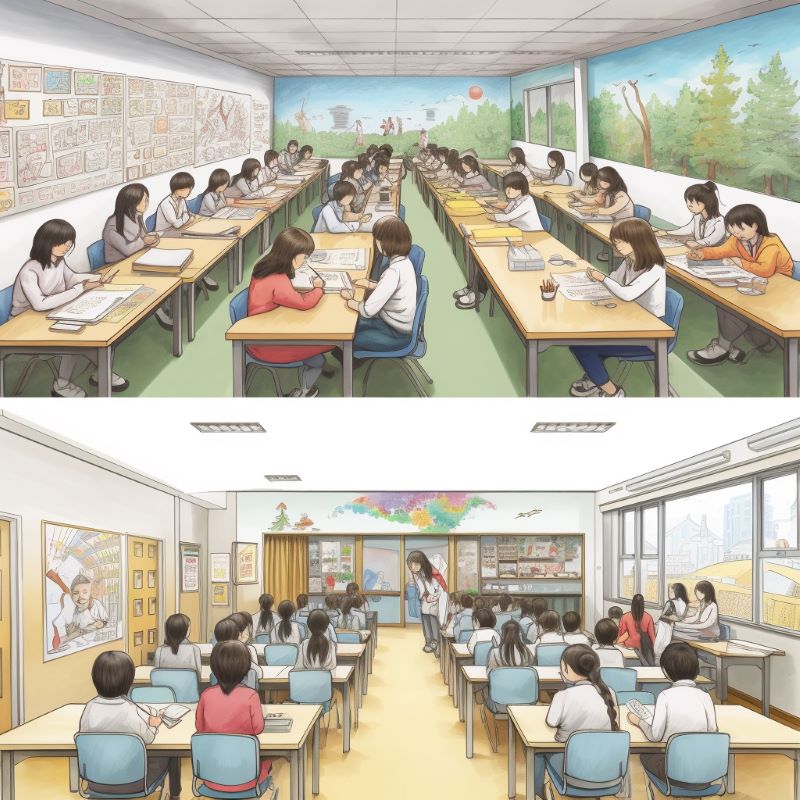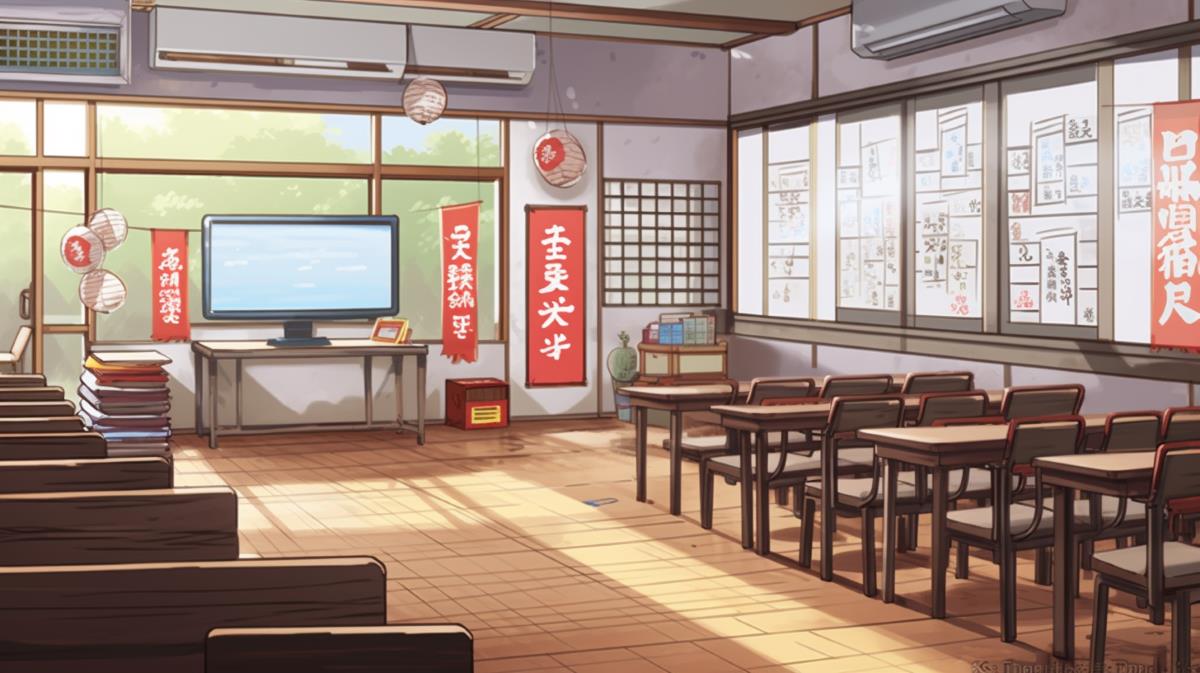Teaching English: Japan Vs. Korea – Which To Choose?
Are you feeling the itch to explore Asia while making a living? Teaching English in Japan and Korea are both popular options, each with its unique pros and cons.
In this article, we’ll guide you through the differences between teaching English in Japan and Korea. We’ll cover the minimum qualifications and requirements, the different types of schools and programs available, and the cultural differences you’ll encounter.
Key Takeaways
- Japan and Korea offer popular options for teaching English, including public and private schools and universities.
- Requirements and options vary, but native-level English, a bachelor’s degree, a TEFL, and a clean criminal record will be enough for both countries.
- South Korea has better entry-level jobs than Japan.
- Cultural differences exist, with Japan being more reserved and hierarchical in social interactions while Korea is more expressive and informal.
- Unique experiences are available in both countries, such as Japan’s diverse cuisine and bustling nightlife and Korea’s spicy and flavorful food and lively nightlife.
What Do People Who Have Taught in Both Korea & Japan Say?
Based on conversations with my colleagues at the school I currently work at, as well as sifting through Reddit threads, a few common themes re-occur regularly:
- Most foreigners find Japanese culture more interesting than South Korean – although obviously, this is very subjective.
- South Korea has better entry-level jobs than Japan.
- If you already have some experience teaching English as a foreign language, then Japan is considered better than South Korea.
- Korean people seem much more diverse and genuine (one on one) than Japanese people (again, this is very subjective in my opinion).
- Korean students are easier to teach, and more engaged
- Vacation and work/life balance are likely to be better in Korea, especially for entry-level jobs.
It’s worth noting that people’s experiences can differ greatly.
One user noted: “Teaching in Japan really seems dreary these days. Korean people seem much more diverse and genuine (one on one). [The] Best suggestion is to work for a major school in Korea for a remote (countryside) location where you can form relationships with people in the community through sports or hobbies.”
South Korea is better if you’re a newly qualified teacher, but Japan is better if you’re experienced
According to those that have experienced both, Korea might be a better option for new teachers due to its entry-level opportunities and relatively easier job prospects.
The teaching market in Korea often offers better deals for beginners, allowing them to start saving money more quickly. On the other hand, Japan is generally more suitable for experienced teachers who have already established themselves in the field
In Japan, teachers need to be cautious with their expenses in order to save a significant amount of money. While Korea offers a slightly grittier environment, which can be seen as a positive aspect for some, Japan is favored by many overall.
Working conditions (and vacations) are usually better in Korea
In Korea, it is more common to have both weekend days off, whereas in Japan, securing weekends off can be challenging, especially in the eikaiwa (English conversation school) industry.
The work shifts in Japan’s eikaiwa can be unpredictable, requiring flexibility from teachers. Additionally, teachers at all kinds of schools in Japan may have limited free time due to long working hours and the expensive and time-consuming nature of travel within the country.
Korea, on the other hand, tends to offer higher pay and better job benefits, and vacation time.
Students in Korea are easier to deal with on the whole

In many Japanese language schools, English is often treated as a once-a-week hobby rather than a serious subject. So students in Japan may lack motivation to learn English, as they do not receive reinforcement or practice at home, and some programs prioritize entertainment over effective teaching methods.
Korean students are often more dedicated and serious about their English studies. Many Korean parents place significant emphasis on their children’s English education, resulting in a more immersive language learning environment.
One downside of Korea is that the pressure to excel academically in Korea can create a restrictive educational environment focused on memorization and intense study habits, which may impact students’ overall well-being. Some teachers can find this unpleasant or even distressing to witness.
Japan vs. Korea: Requirments for Teaching English
If you’re considering teaching English in Japan or Korea, you should know the basic requirements and qualifications needed.
| Requirement | Japan | Korea |
|---|---|---|
| Nationality | US, UK, Canada, Ireland, South Africa, Australia, or New Zealand | US, UK, Canada, Ireland, South Africa, Australia, or New Zealand |
| Degree | Bachelor’s degree in any subject | Bachelor’s degree in any subject (apostilled diploma) |
| Criminal record | Clean criminal record (FBi Background Check) | Clean criminal record (FBI Background Check) |
| Native English speaker | Yes | Yes |
| TEFL certification | Not required by law, but some schools prefer them. A good targeted course will also help you do your job. |
Not required by law, but some schools prefer them. |
As you can see, the requirements are generally the same in both Japan and Korea.
Read our post about requirements for teaching English in Japan for more detail.
TEFL courses aren’t required by law in either country; they can be preferred by schools and provide benefits such as better job opportunities and higher salaries.
However, the job market in Japan is more competitive than Korea’s, so having a TEFL certification may not necessarily guarantee a job in Japan.
In Korea, an FBI background check and an apostilled diploma are required for teaching English. These documents must be obtained before arriving in Korea, and failure to provide them can result in the cancellation of a job offer.
In both Japan and Korea, a master’s degree is required to teach at a university.
Types of Schools and Programs
When deciding where to teach English in Japan or South Korea, it’s essential to consider the different types of schools and programs available.
English Teaching Jobs in Japan
JET is probably one of the best-known English teaching programs in Japan. But it’s not your only option.
Let’s look at some of the different options in more detail.
- JET Program: A program that brings young people from around the world to Japan to teach English and promote international exchange at the local level.
- International schools: Schools that offer an international curriculum often have a high percentage of international students.
- Private language centers: Private language schools (like GABA) that offer English classes to students of all ages.
- University English teaching: Teaching English at a university in Japan is usually only available to more experienced teachers.
- Private Tutoring: Teaching English to students one-on-one.
- Eikaiwa Teacher: A teacher who works at an eikaiwa school, a private language school focusing on conversational English.
English teaching jobs in Korea
- EPIK (English Program in Korea): A program that places native English speakers in Korean public schools to teach English.
- GEPIK (Gyeonggi English Program in Korea): A program that places native English speakers in public schools in Gyeonggi Province to teach English.
- SMOE (Seoul Metropolitan Office of Education): A program that places native English speakers in public schools in Seoul to teach English.
- Private language centers (Hagwons): Private language schools that offer English classes to students of all ages.
- University English teaching: Teaching English at a university in Korea.
- Private Tutoring: Teaching English to students one-on-one.
In public schools, ALT (Assistant Language Teacher) positions are available in both Japan and Korea. Public schools tend to have more structured schedules and curriculum, with teachers working closely with local teachers to provide a well-rounded education.
Private schools, on the other hand, may offer more flexibility and autonomy when it comes to teaching methods and curriculum.
Another option for teaching English in Japan and Korea is through government-run programs. In Korea, the EPIK (English Program in Korea) program places teachers in public schools throughout the country. In Japan, the JET (Japan Exchange and Teaching) program offers positions as assistant language teachers in public schools or as coordinators for international relations in local governments.

Salary and Cost of Living
According to a survey by GaijinPot, most full-time English-language teachers in Japan are earning a salary of about ¥270,000 before tax each month, which is roughly US$2,515.
According to another survey by the Japan Association for Language Teaching (JALT), the average salary for a full-time English teacher in Japan is around ¥300,000 to ¥600,000 per month.
As for Korea, the average salary for an English teacher is around 2.1 million won per month or US$1,800.
Cultural Differences & Considerations
Consider the cultural differences and nuances between Japan and South Korea when deciding where to live and work as an English teacher.
Food & Nightlife
With its coastal geography, Japan offers a sea of seafood options, from melt-in-your-mouth sushi and sashimi, often savored in traditional ‘Izakaya’ pubs, to the light and airy tempura and comforting ramen. However, be prepared to shell out more for meals here, as food tends to be pricier and portions smaller than in other countries.
As for nightlife, cities like Tokyo and Osaka are bursting with energy and options – bars, pubs, and video game arcades all stay open until the wee hours. Okinawa might be a better bet if you’re looking for a more relaxed lifestyle.
Korea, meanwhile, grabs your taste buds with its robust and spicy cuisine. Staples like kimchi and bibimbap offer a flavorful kick, while ‘samgyeopsal,’ or Korean barbecue, is a meat lover’s delight. The food is also more affordable than in Japan, giving you more bang for your buck.
Nightlife in Seoul and Busan is lively, but it’s worth noting that options beyond drinking may seem limited.
The food in both Japan and Korea is amazing. If I had to choose, I slightly prefer Japanese food but that’s just me!
Language & Communication
Language and communication in Japan and Korea can be a bit of a hurdle.
You don’t need to know Japanese to teach English, but you might find that English isn’t widely spoken in Japan, especially outside major cities. Learning a few phrases in Japanese could go a long way in making your journey smoother. Interestingly, I’ve experienced some locals may avoid serving foreigners in restaurants or cafes out of fear of having to communicate in English. Conversely, others will go out of their way to use Google Translate to ensure they serve you well.
English proficiency in Korea varies, and you may encounter a stronger language barrier than in Japan. This, coupled with a more noticeable anti-foreigner sentiment – I’ve heard a few reports of older people holding very strong anti-american views – can make navigating Korean social interactions a bit challenging.
General attitudes towards foreigners
Japan generally welcomes foreigners, exhibiting a blend of curiosity and caution. As mentioned, there can be moments of discomfort, such as being denied service due to potential language barriers.
Be aware that tattoos are frowned upon. Even a tiny bird tattoo might cause offense at a swimming pool or onsen, so it’s a good idea to keep them under wraps with athletic tape. And if you have tattoos on your arms or legs, you definitely want to take extra steps to keep them covered at school.
In Korea, the experiences of foreigners can vary widely. Some report feeling unwelcome, even experiencing discrimination or hostility, particularly from the older generation.
That said, Korea has plenty to offer with its affordable food, beautiful parks, and hiking trails. You may also encounter strong religious beliefs as there are many evangelical churches among some adult groups, so adjust expectations accordingly.
Frequently Asked Questions
What is the demand for English teachers in Japan and Korea?
If you have the qualifications, there are job opportunities for English teachers in both Japan and South Korea. However, the job market is more competitive in Japan, while more jobs are available in Korea.
How does the cost of living and salaries compare between Japan and Korea for English teachers?
When comparing salaries vs. expenses and lifestyle in Japan and Korea, English teachers may find that Korea offers better pay and a lower cost of living. However, Japan may offer a more diverse and international cultural experience.
What is the visa process like for teaching English in Japan and Korea?
To work in Korea or Japan, you need a work visa. Both countries have pretty similar requirements, which we have detailed above.
What are the living arrangements like for English teachers in Japan and Korea?
As an English teacher in Japan or Korea, you can expect to have your own apartment provided by your employer. Accommodations in both countries are typically small but comfortable and convenient.
What is the social scene like for English teachers in Japan and Korea?
When teaching abroad, you’ll find the social scene is lively in both Japan and Korea. Nightlife and cultural experiences depend on your location and interests. Engage with locals, network with other teachers, and enjoy your time in a new culture.
